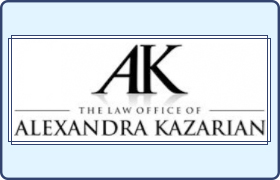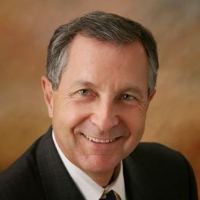 Silverado White Collar Crime Lawyers, California
Silverado White Collar Crime Lawyers, California
Sponsored Law Firm
-
 x
x

Click For More Info:
-
The Law Office of Alexandra Kazarian
15851 Whittier Blvd Whittier, CA 90603» view mapCriminal Law Aggressive & Experienced Criminal Defense
Trust the Law Office of Alexandra Kazarian with your Criminal Defense Case in Whittier & Los Angeles California.
800-773-5851
Sponsored Lawyers
1-10 of 23 matches
White Collar Crime, Felony, DUI-DWI, Criminal
Following 10 years as a senior prosecutor with the Orange County District Attorney's Office, where he supervised the Homicide Panel, Paul Meyer founded his own firm in 1981. His practice includes both state and federal criminal defense, involving such matters as the successful defense of Merrill Lynch during the Orange County bankruptcy in 1996, the defense of members of the Orange County Board of Supervisors and judges of both the Los Angeles and Orange County Superior Courts. His practice includes a wide variety of vehicular crimes, from manslaughter to D.U.I. along with defense of fraud, child pornography and regulatory matters involving the District Attorney and federal agencies. Mr. Meyer takes a "hands on" approach to practice. Mr. Meyer is currently designated as one of five lawyers in Southern California for legal representation of judges and justices before the Commission on Judicial Performance. He has successfully tried dozens of major felony cases before juries in both Los Angeles and Orange Counties; comprising, in all, over 200 jury trials. For nearly 40 years Mr. Meyer has been the lead lawyer in representation of the most serious criminal cases charged in Southern California. He was selected as the Criminal Defense Attorney of the Year by the Orange County Trial Lawyers Association, and recently as Trial Lawyer of the Year for Orange County by the Best Lawyers in America. He has consistently been named to the Top 100 and Top 50 lawyers in Los Angeles and Orange Counties. Mr. Meyer has been cited by the Los Angeles Times and New York Times for his work in many cases including the successful federal and state representation of Superior Court Judge Ronald Kline, County Supervisor Don Roth and other elected officials. His successful criminal defense of Princess Alayban of the Royal Family of Saudi Arabia received world-wide media coverage, as did his earlier successful defense of Merrill Lynch. He led the criminal defense of the regional branch of the Republican Party. He is the legal representative of the Orange County Deputy Sheriff's Association, and the designated representative in matters involving use of deadly force by the Orange County Probation Department. A guest speaker of the Department of Justice, National Medical Examiners Association, Fidler Institute in Los Angeles, California Public Defenders and District Attorneys Associations, an Association of Business Trial Lawyers, he has also taught consistently throughout his career. Mr. Meyer has lectured internationally on subjects of ethics and professionalism for the American Academy of Matrimonial Lawyers. Mr. Meyer served as Adjunct Professor of Law for Western State University College of Law and for the Police Officers Standards and Training (P.O.S.T.). His teaching includes C.E.B. programs for the State Bar, and the College of Trial Advocacy for Orange County. His work on The Uses of Experts in Criminal Trials has been published in the ABA Litigation Manual. A Fellow of the American College of Trial Lawyers, Mr. Meyer served as Regent for Southern California, Arizona and Hawaii from 2008 to 2012. Mr. Meyer is also a Fellow of the International Society of Barristers and also a Fellow of the International Academy of Trial Lawyers. He has been recognized for his leadership roles in many other organizations including service as a Director at Large for the Orange County Bar Association, Director of the Community Services Program, and on the Board of the Center for Lawyers and Trial Advocacy of Chapman University School of Law. He graduated from the U.C.L.A. School of Law where he served as Chief Articles Editor of the U.C.L.A. Law Review. He received the Order of the Coif. Mr. Meyer's work has been cited hundreds of times by the New York Times, USA Today, Los Angeles Times, Orange County Register, and many national magazines. He has appeared as a guest commentator for CNN and was selected by CNN to provide exclusive commentary of the opening statements in the O.J. Simpson murder trial.
(more)Felony, White Collar Crime, Consumer Protection, Criminal, Expungement
Michael Molfetta is a renowned litigation attorney who has been practicing for almost 30 years. He has been lead counsel in more than 300 jury trials. He has represented individuals and multinational corporations in both State and Federal Court. Mr. Molfetta also has extensive experience representing clients involved in complex criminal cases and “high profile” clients. Attorney Molfetta has represented numerous client’s, both individuals and corporations, who have been charged with crimes. Loan Fraud, SEC Violations, allegations involving the sale of securities without a license, Investor Fraud, to name a few areas. As a criminal defense attorney he has handled over 100 “special circumstances” homicide cases where the “death penalty” was potentially being sought by the prosecution. He has appeared as a legal expert and also as a legal correspondent on every major network and was a regular on ABC’s World News Tonight, and ABC News Magazines. He was a legal analyst during the prosecution of Kobe Bryant, Michael Jackson, and Scott Peterson. He has also appeared on Larry King Live, Nancy Grace, Dateline, 20/20, and Geraldo Rivera to name a few. He has co-written several television scripts as well and was at one time represented by William Morris Endeavor Agency. Michael Molfetta is a member of the California Bar and received his Juris Doctorate from Southwestern Law School in 1990. Mr. Molfetta received his B.A. from Occidental College in 1986. Mr. Molfetta played professional football in Europe prior to a 15 year career playing international rugby.
(more)




 Alexandra Kazarian Whittier, CA
Alexandra Kazarian Whittier, CA AboutAlexandra Kazarian Law Firm
AboutAlexandra Kazarian Law Firm Practice AreasExpertise
Practice AreasExpertise


